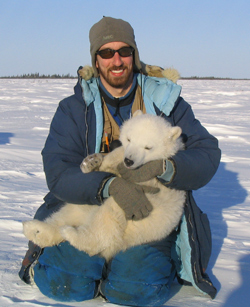Graduate

The Department of Biology offers a two-year MSc program and a four-year PhD program. Thesis work is carried out within an exceptionally vibrant research community comprised of more than 25 research groups. We typically have over 100 graduate students, 30 adjunct faculty and 10 postdocs working within these groups at any one time.
Information and Resources for Graduate Studies on sharepoint
Graduate studies in biology
The Department of Biology offers graduate level training that spans multiple levels of biological organization. The goal of the program is to provide training in core scientific skills, expose students to a broad array of research activities, and instill in them the confidence to use this training to pursue their individual research interests as they develop.
Degree programs are flexible, with a strong emphasis on thesis-related research activities. Students following this program have successfully tackled problems ranging from the estimation of river dolphin population densities "Catalina Gomez" to the origins of genomic architecture " David R. Smith".
The Department of Biology offers a two-year MSc program and a four-year PhD program. Thesis work is carried out within an exceptionally vibrant research community comprised of more than 25 research groups. We typically have over 100 graduate students, 30 adjunct faculty and 10 postdocs working within these groups at any one time.

All graduate students are required to take the graduate communications skills class and the graduate modules class in their first year of study. In addition to providing a solid beginning to a full program of study, these courses give new students an opportunity to meet each other and become quickly integrated into our research community. Additional graduate courses may be taken within the Department of Biology or within other academic units at Dalhousie University.
Themes
Researchers commonly draw upon several sub disciplines of biology to achieve their research goals. For example some faculty use genetics and molecular biology to identify and study the evolutionary origins of organism diversity, while others use the comparative framework to study the functional diversity of genes and molecules. While it is difficult to exclusively place our faculty members into single research themes, the following four themes provide an indication of the collective research interests within the Department of Biology.
- Molecular, Cellular & Developmental Biology
- Ecology & Evolution
- Genetics & Genomics
- Marine Biology

